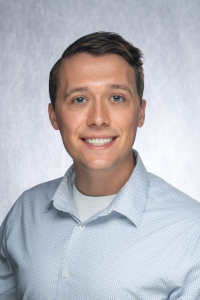Tell us about your background. What led you to pursue a career in research?

I’ve always known I wanted to work in science, but for much of my life, I wasn’t sure which field was the right fit. Initially, I set my sights on becoming a medical doctor and began following the pre-med track. Through my coursework, I found myself increasingly drawn to understanding human diseases—what mechanisms lead to disease development, why individuals experience the same disease differently, and how genetics influence pathogenesis. To explore these questions, I joined a research lab studying chronic kidney disease during my freshman year. My time in the lab, combined with the realization that while I was fascinated by medicine, I didn’t want to practice it, inspired me to pursue a PhD in biomedical science. This path allows me to stay connected to medicine through discovery and innovation.
What is the focus of your work?
My research focuses on uncovering both acquired and genetic drivers of complement-mediated diseases such as C3-Glomurlopathy (C3G) and atypical hemolytic uremic syndrome (aHUS). More specifically, as an aspiring computational structural biologist, I work at the intersection of wet lab experimentation and computational modeling to explore the intricate interactions between complement proteins.
What excites you about the research environment in Molecular Physiology and Biophysics?
Complement is a cornerstone of our immune system, and each person has a slightly different complement response. Some individuals exhibit hyperactivity, others hypoactivity—both of which can contribute to disease. I’m deeply interested in understanding what determines the 'fulcrum point' of this balance—what tips the scale toward pathology or protection. I believe the department’s collaborative atmosphere, cutting-edge research, and strong mentorship provide the ideal environment to deepen my understanding of these mechanisms and grow as a scientist.
How do you hope your research will impact the field and the broader community?
Currently, around 35–45% of C3G patients have unknown drivers of their disease. During my thesis work in the Molecular Otolaryngology and Renal Research Laboratories (MORL), under the guidance of Drs. Smith, Zhang, and Welsh, I hope to advance our understanding of complement and the underlying disease mechanisms in these patients. Additionally, I aim to contribute to the discovery of novel therapeutics that improve the quality of life for individuals living with chronic kidney diseases.